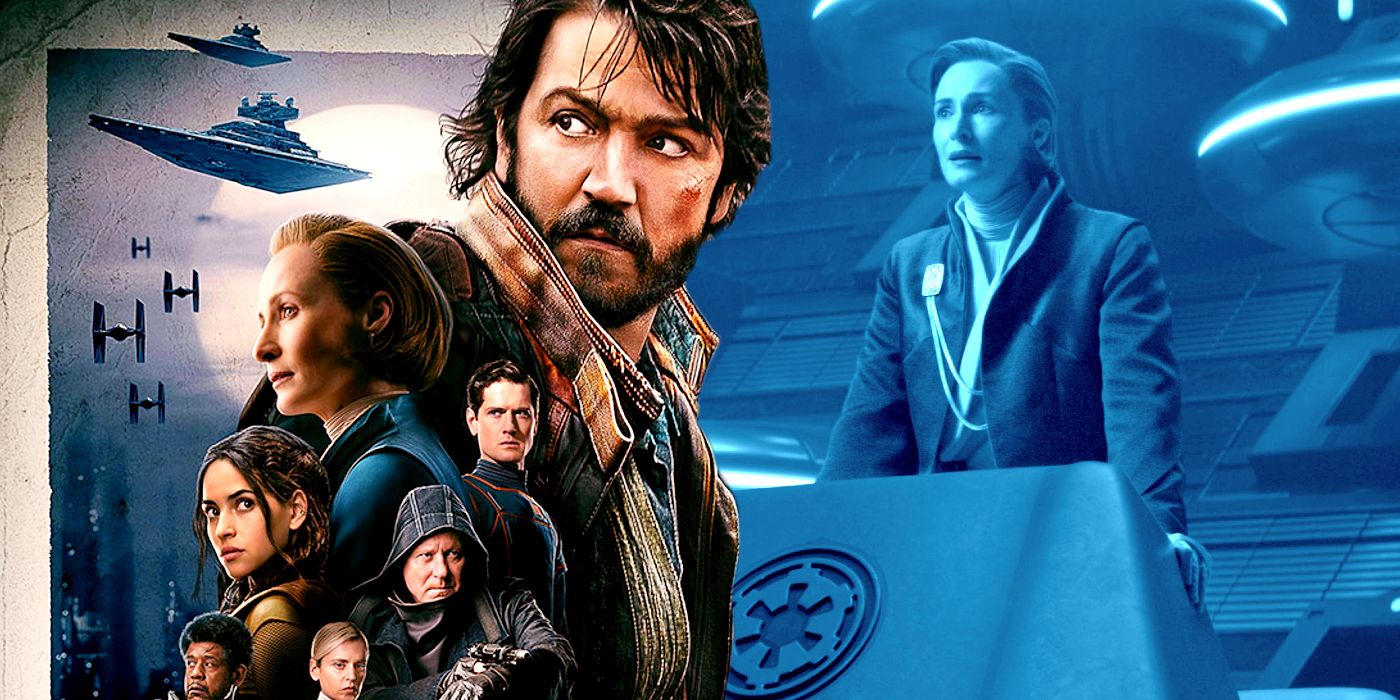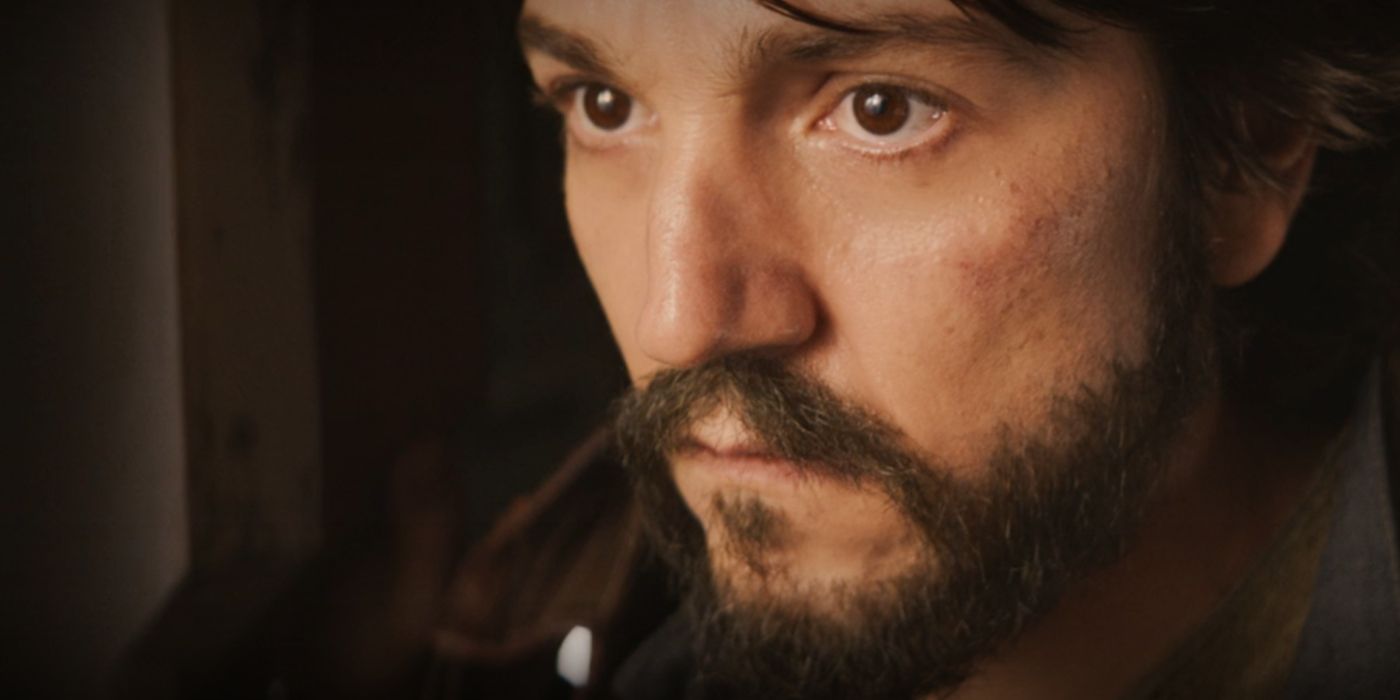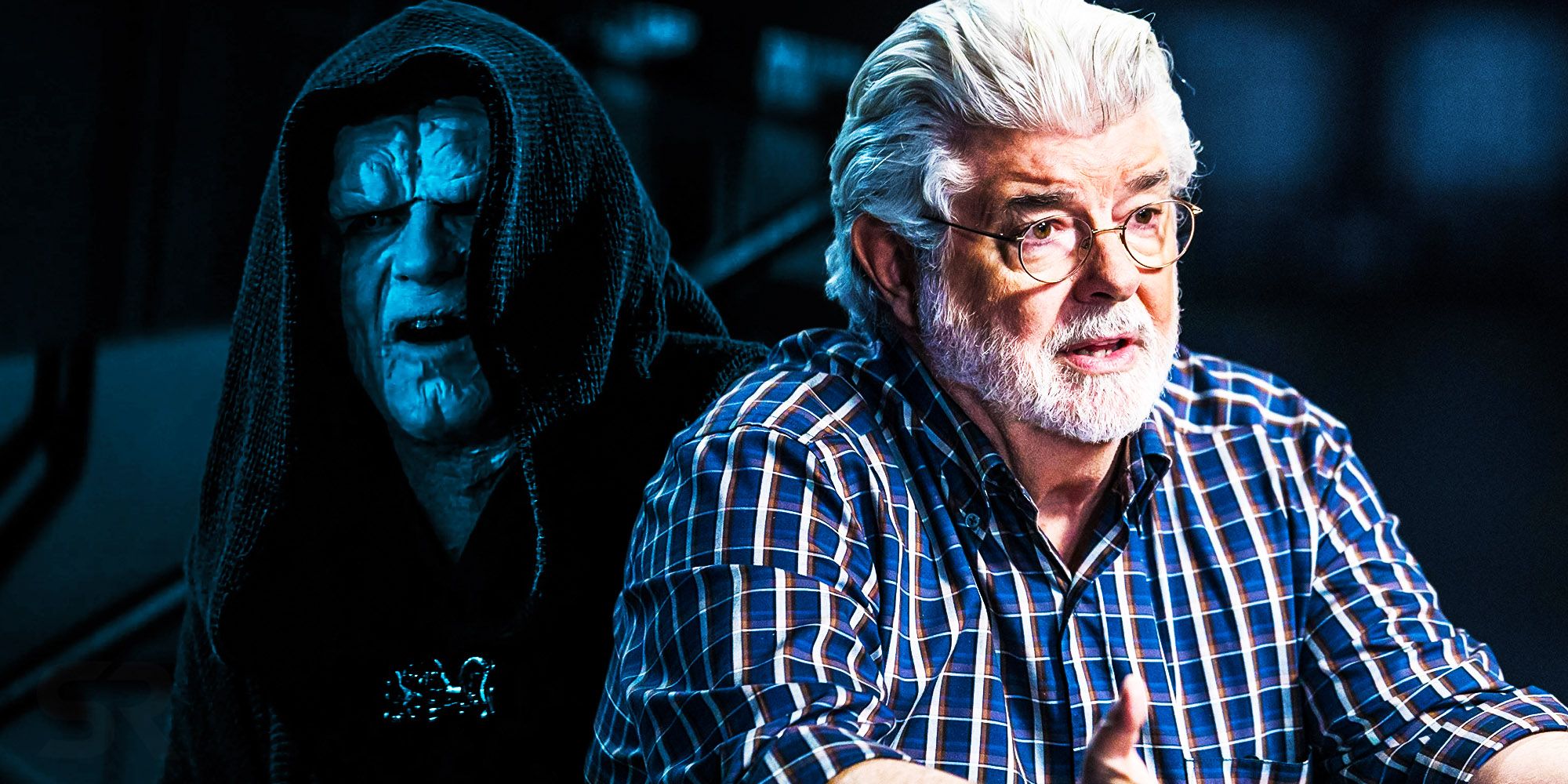This article contains spoilers for Andor episodes 1-3.The Andor Disney+ TV show is one of the most explicitly political stories in Star Wars to date. The last few years have seen Star Wars transform into a trailblazing transmedia franchise, in large part because of the success of its live-action Disney+ TV shows. The first season of The Mandalorian launched alongside the streaming service, and since then there have been a succession of hits, including the recent Obi-Wan Kenobi series set during the Dark Times of the Empire's reign. The latest offering, Andor, is proving the most topical and politically-charged to date.
A prequel to Rogue One: A Star Wars Story, Andor stars Diego Luna as he reprises the role of hard-edged Rebel spy Cassian Andor. Andor episodes 1-3 are something of an origin story, revealing his secret beginnings on the remote Rim World of Kenari before exploring his life in the Corporate Zone. The show is dark and gritty, with showrunner Tony Gilroy going to great effort to make it as grounded and realistic as possible. Andor feels like the next evolution of Star Wars, with far fewer Easter eggs than hardcore fans are used to and a reliance on deeper storytelling and characterization that's refreshing to see.
Naturally, such an evolution is proving divisive. That's particularly true because, although Star Wars has always been political, Andor doesn't even try to hide its views. What's more, this time the politics aren't those of the 1970s - the show is open and critical in its discussion of the modern world. However, these themes not only help the show feel timely, but they arguably make the narrative even more impactful and relatable for a contemporary audience. This trait helps explain why Star Wars continues to enjoy such enduring success – because it's ideas are applicable to the world its audience inhabits.
Andor Is A Star Wars Show With Modern Politics (& That's Good)
Disney+'s latest Star Wars TV show has clearly been marketed on its politics. According to actress Fiona Shaw (who plays Andor's adopted mother Maarva Andor), Gilroy's script is "a great, scurrilous [take] on the Trumpian world." As she explained in an interview with Empire Magazine, "Our world is exploding in different places right now, people’s rights are disappearing, and Andor reflects that. [In the show] the Empire is taking over, and it feels like the same thing is happening in reality, too."
Andor views Trumpism as a form of encroaching fascism that is focused on conformity and control, and it achieves this by looking at it from a distance. The first three episodes are set far from Star Wars' famous city-planet of Coruscant, in a region of space where corporations rule and are allowed a degree of independence. Even here, there is an uneasy tension; this independence is only allowed so long as the corporations enforce the same kind of "order" the Empire insist upon. Corporate Security officers may not look like stormtroopers, but their uniforms are designed to reduce individuality, and they exhibit the kind of fascistic attitudes exhibited by the Empire. The commentary on fascism's desire for control is sometimes subtle, such as in a scene where one trooper complains at the fact constructions on Ferrix aren't rigidly controlled. This sector of space is one where capitalism and fascism have blended together.
Andor goes a step further, however, in its portrayal of Corporate Security. Events kick off when Diego Luna's Cassian Andor is approached by two corrupt CorSec agents, in a scene reminiscent of police brutality in the real world. The first villains are not Imperial officers, then, but corrupt cops who cannot abide that their power has been resisted. These corrupt officers are the ones responsible for implementing the encroaching imperialism of Andor, and they believe they cannot be resisted. When the citizens of Ferrix promise a reckoning, it's hard not to feel as though this is a commentary on the Black Lives Matter movement or the Sarah Everard protests in the U.K.
Most Star Wars shows focus on Easter eggs, using them to appeal to nostalgia and rekindle the emotions viewers had when they watched previous films or TV shows. As enjoyable as Obi-Wan Kenobi may have been, its central theme was the build-up to a rematch audiences haven't seen since Star Wars: Episode III - Revenge of the Sith. Although there have been political ideas and concepts, they have often been subtle and are usually muted. Andor is different; it gives Star Wars both a voice and something to say. That's a refreshingly bold approach, one perfectly suited to a story set in the Dark Times.
Star Wars Has Always Been Political (Just Ask George Lucas)
This approach is, naturally, quite a controversial one. George Lucas would probably be proud of it, though, because in truth Lucas' Star Wars was always much more overtly political. Lucas was inspired by the real-world events of the Vietnam War, and it's notable that even then he envisioned the United States as the technologically-advanced superpower and the Viet Cong as the plucky Rebel Alliance. This theme became most explicit in Return of the Jedi, with the Ewoks successfully using guerrilla tactics against the Empire. The Emperor himself was inspired not by Hitler or Bonaparte, but rather by Richard Nixon. Back in 1981, Lucas was famously asked whether the Emperor was a fallen Jedi. "No, he was a politician," Lucas replied, "Richard M. Nixon was his name. He subverted the senate and finally took over and became an imperial guy and he was really evil. But he pretended to be a really nice guy."
Lucas' fascination with politics and history became even more obvious in the prequel trilogy, which began with an opening crawl discussing trade routes. In Lucas' prequels, the fall of the Republic was celebrated by the masses; "So this is how liberty dies," Padmé Amidala famously observed, "with thunderous applause." For Lucas, the fascism of the Empire originally began with populism, with a weary population who had grown disengaged from democracy and longed for a strong leader to buttress them against a dangerous galaxy. It seems likely Lucas would connect those themes to Donald Trump and his movement, given the celebrated filmmaker served as a consultant on an anti-Trump ad that ran in key battleground states back in 2016.
In thematic terms, then, Andor is not a version of Star Wars with a new political voice; rather, it is one that has regained the voice it always had in the first place. Lucas has always envisioned Star Wars as both anti-fascist and anti-populist, and Tony Gilroy's script follows the same story beats. Lucas was famously disappointed by Disney's sequel trilogy, but it's likely he'd be a lot less critical of Andor.
Andor releases new episodes on Wednesdays on Disney+.



